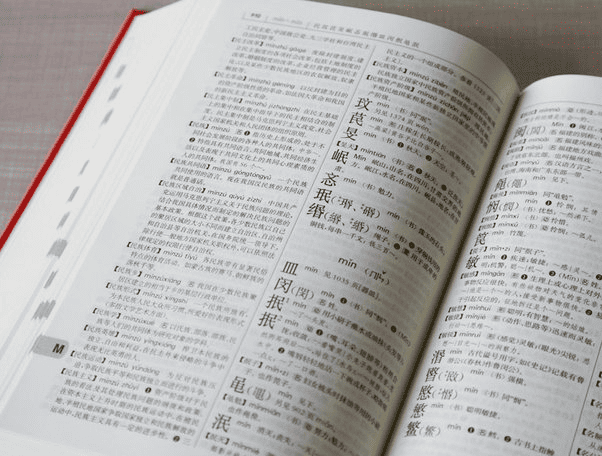Mandarin Chinese is one of the major ancient languages still around, with its unique writing system. It is also a rich language with a wide-ranging vocabulary. However, how many words in the Chinese language are there?
There may be over 370,000 Chinese words, although these words are formed by combining around 55,000 unique characters. Of these words, only about 7,000 are used today. You should be able to converse daily if you know about 500 characters.
In this article, let’s explore the number of words in the Chinese language and how many you need to be considered fluent.
Are Chinese Words And Characters Different?
Before discussing the subject of Chinese words, it is important to make a difference between Chinese characters and words. This is because they are two separate things.
Mandarin Chinese has a unique writing logographic system. When you write Mandarin Chinese characters, you draw out a series of ‘logos,’ each containing a full meaning.
For example, the individual character 精 (Jing), on its own, means ‘essence.’ Some individual characters can form their own word as well.
However, words can also be formed by combining several Chinese characters together. Grammatically, these are called Compound words.
Let’s reuse the example above. The character 精 (Jing) can be combined with the character 神 (Shen) and 子 (Zi).
Once combined, they form compound words of different meanings. The word 精神 (jing shen) means ‘spirit, state of alertness.’ The word 精子 (jing zi) means sperm.
This means Chinese words can be formed by using the characters independently or combining two or more characters to form a compound word.
For example, 英格兰(Ying ge lan) actually means England, while 二氧化碳 (er yang hua tan) means carbon dioxide.
This is different from the English alphabet, as most individual letters have no meaning (except A and I). You have to string two or more together to form a word.
Totally different thing, huh? If you find this confusing, do understand you are not alone.
In fact, this is the exact issue you will face if you try to learn a foreign language too far beyond your language family.
English and Mandarin Chinese are pretty much as far as they can be because they are separated at the top level family. English and most European languages are part of the Indo-European family, while Chinese is part of the Sino-Tibetan language family.
READ MORE: 12 Hardest Asian Languages For English Speakers To Learn
How Many Words Do You Need To Be Fluent In Chinese?
With so many Chinese words and characters, do we need to memorize them all to be fluent? The answer is no. You do not need to.
You also do not need to know most of the words in English. In many cases, a core vocabulary of about 4,000 is more than enough to be generally fluent.
Suppose you have 10,000 or more active or passive vocabulary. In that case, you are either a native speaker or a very proficient English learner.
In Chinese, the good news is you do not need to know many characters. Pearson, one of the most popular language teaching resources, claims that you only need a basic vocabulary of 100 characters.
Pearson proposes that by having 100 active vocabularies in Chinese, you can already read 50% of common Chinese texts.
This is not far-fetched, considering how you can combine these characters to form compound words.
However, you can look at some standardized Chinese proficiency tests if you prefer a more reliable metric.
In English, the standard proficiency test would be the IELTS or TOEFL. For the Chinese language, most Chinese learners sit for the HSK (汉语水平考试, Hanyu Shuiping Kaoshi) or the Chinese Proficiency Test.
The HSK has set the number of characters you need to recognize to be at a certain level of proficiency. HSK sets that you need to be able to recognize 617 characters to be able to:
- Use Chinese in daily conversations
- Study in Chinese
- Perform work in Chinese
Now, suppose you wish to acquire native-like proficiency in Chinese. HSK requires you to recognize 2,663 single characters and 5,000 words in that case.
If you can achieve this Chinese level of proficiency, it would be equivalent to C2 in the CEFR banding. If you are to translate this to the IELTS English test, that would be band 8.5.
How Do You Build Up Chinese Vocabulary Size?
We know you need to remember the Chinese characters, as you cannot spell them. This means you must make a serious effort to build up your Mandarin vocabulary.
Here are some of the ways you do so:
Start With the Basics
Start by working through the most common words and phrases used in everyday conversations. This should give you a satisfactory ‘quick win.’
This is because just by learning 100 characters, you can already read 50% of Chinese texts.
You can use textbooks, online resources, or language learning apps. You can also check out the 100 most frequent characters in Chinese here.
Learning Chinese Through Game
Playing games related to the Chinese language is an exciting and engaging way to immerse yourself in learning. These games often incorporate elements of Chinese culture, history, and daily life, making the learning process both educational and enjoyable. Whether you are a beginner or have some proficiency, games can help improve your vocabulary, pronunciation, and understanding of Chinese characters. Interactive and dynamic, these games provide a hands-on approach to learning that can be more effective than traditional study methods.
Moreover, these games can foster a deeper connection to the language by making learning feel like play rather than work. They often involve challenges and rewards that keep players motivated and eager to learn more. From puzzle games that require matching characters to adventure games set in historical Chinese settings, there's a wide range of options to suit different learning styles and interests.
You can try out some traditional Chinese game that can help you improve your Chinese language, for example Animal Chess, Go, Xiangqi chess, or Mahjong scatter hitam. By integrating Chinese language learning into gaming, you can develop your skills in a fun, relaxed environment while gaining a richer appreciation of the language and culture.
Set Daily Goals
Dedicate a certain amount of time every day to learning new characters. This could be as little as 10 minutes. If you are hard-pressed for time, you can always squeeze the learning time into your daily activities, such as exercise or driving.
READ MORE: 7 Ways To Learn A Language While Driving
Practice, practice, practice
You cannot ‘spell’ Mandarin, so you must build up your recognition skills. What is the best way to do this? Repetition and practice.
Writing down the characters on flashcards and reviewing them regularly may be useful. There are also language learning apps that can help with this too.
Read Chinese materials
If you are starting in Mandarin, reading simpler reading materials may be a good idea. You can always start by reading children’s books. At this stage, it may help to have authoritative dictionaries. Using an online dictionary is also a good idea.
Reading newspapers, magazines, and books may be better once you have built some proficiency. It should help you expand your vocabulary and improve your grammar as well.
Watch Chinese Media Shows
Similar to reading, following what’s happening on TV shows may be hard if you are new to the language.
However, you can always turn on the subtitle and work on recognizing some of the words seen or said on the show. Once your proficiency has improved, you can then appreciate these shows better.

Read, Write, Speak It
Depending on your level of vocabulary and proficiency, you can try to use what you have learned. If you are still new, consider spending time on ‘slower’ input and output skills, such as reading and writing. These activities give you time to pause and think if you have difficulty.
Once your proficiency has developed, you can try faster skills, such as listening and speaking. Try to see if you can find patient and helpful Chinese speakers to work with you. These are much more difficult since you cannot stop the speaker just because you do not understand them.
The key is to be patient and slowly work your vocabulary acquisition up. You’ll slowly develop a larger vocabulary and will be able to use Chinese as an everyday language.
How Many Words In Chinese Language Are There?
We may look at the Merriam-Webster dictionary (unabridged) for English vocabulary. You should get around 476,000 words. The Oxford English Dictionary claims to have over 600,000 words.
Now, for Chinese, you will be looking at The Great Compendium of Chinese (汉语大字典).
In this Chinese dictionary, it lists out close to 55,000 unique characters. These characters can then be combined to form over 370,000 Chinese words.
If you think about it, English is essentially a set of 26 letters, and you arrange it to form 600,000 words. In Mandarin Chinese, you actually have 55,000 unique characters to remember.
You cannot spell these characters either; you either remember them or don’t.
However, the good thing is that of the 55,000 characters in Chinese, many are essentially ‘dead’ characters. They are probably only used in classical texts or specific fields of knowledge such as science or philosophy.
Modern Chinese only uses about 7,000 characters. Of these characters, they combine and form over 100,000 words. In fact, most Chinese people may not know many of them.
Do understand that we are referring to simplified characters here. Traditional Mandarin Chinese is a different script and may have its own set of characters and words.
In most cases, you may safely ignore the Traditional Chinese script. You mostly see traditional script only within Hong Kong and Taiwan. Part of the Chinese population in Malaysia and Singapore also uses the script.

Wrapping Up
The Chinese language consists of around 55,000 characters, combined to form over 370,00 words. However, you only need around 600 characters to function in the language daily.
The key is understanding that Mandarin Chinese is one of the hardest languages to learn. You will need a lot of patience.
Suppose you prefer to not learn Mandarin, because its too tough. In this case, what about if you learn the easiest Asian language for English speakers?

